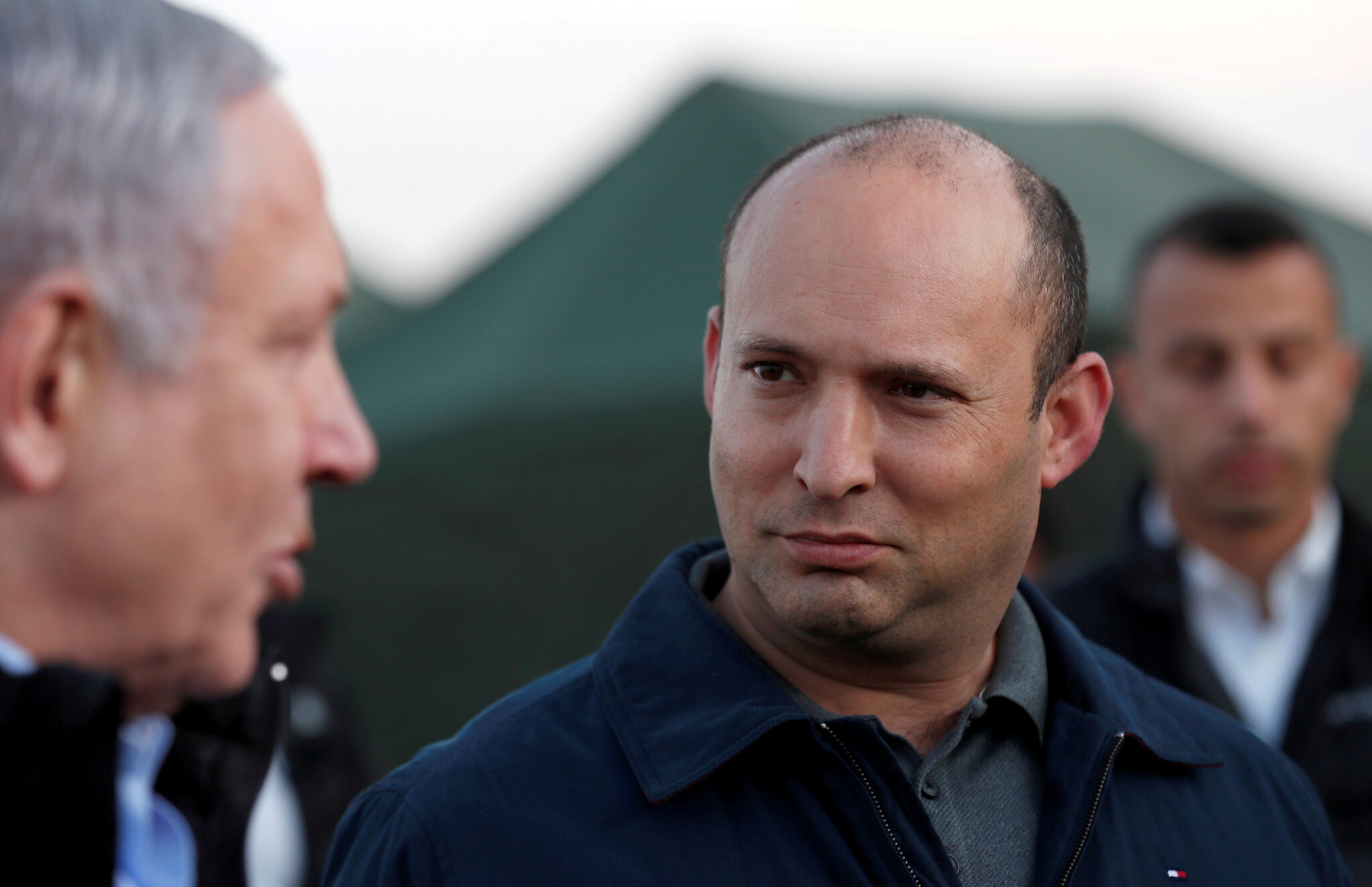Sir Mick Davis: A new kind of government in Israel might just be possible
Naftali Bennett seems determined to repair Israeli politics rendered dysfunctional under Netanyahu, stating: 'There’s no Orthodox, Conservative or Reform Jew. We’re all Jews.'

That the current Israeli government’s ability to pass a budget is such a cause for relief – “a day of celebration” Prime Minister Naftali Bennett called it – is a sign of just how dysfunctional Israeli politics had become. After all, this was the first time since 2018 that an Israeli government had fulfilled this most basic function.
The coalition deserves enormous credit for this. The differences between the coalition partners – left, right, Jewish, Arab – are profound. To see them coming together to shelve their differences in the name of the national interest is a triumph for pragmatism. It offers hope that Israel might now have a government capable of governing in the long-term strategic interests of the country, rather than serving the narrow tactical interests of recent years, lurching from one short-term political crisis to the next.
As coalition architect and foreign minister Yair Lapid put it: “The country is no longer on hold, it’s back in the right place, where it works for the citizens and not the other way around.”
Get The Jewish News Daily Edition by email and never miss our top stories Free Sign Up
For too long, under its previous leadership, Israel’s deadlocked parliament created stagnation and paralysis, eroding the foundations of democratic governance and proving incapable of addressing the country’s strategic needs. Ironically given its political mantra, it was unable to make Israel safer from the outside – the new government inherited a region with Iran closer to a bomb than ever – or from within, as demonstrated by the explosion of violence between Jews and Arabs earlier this year.
The country is no longer on hold, it’s back in the right place, where it works for the citizens and not the other way around
In terms of Israel’s relationship with Diaspora Jews, the previous government exported antagonism and polarisation to Jewish communities around the world as well. PM Bennett appears determined to undo this damage, writing this week that “there’s no Orthodox Jew, Conservative Jew, Reform Jew; we’re all Jews.”
His predecessor in the PM’s office, on the other hand, dusting himself down from Knesset defeat took to Twitter to share a tweet by Shas leader Aryeh Deri calling on people to pray at the Kotel so that “this holy place will not be desecrated,” a reference to Conservative and Reform egalitarian prayer. Compare and contrast. Bennett, an Orthodox Jew, attempting to find a tone to promote Jewish unity. Netanyahu, a secular Jew, pandering to the most chauvinistic elements of orthodoxy in an attempt to sow political division and reap the political benefits.

Meanwhile, just months after the divisions between Jews and Arabs demonstrated the existential threat to Israeli society of sectarian hatred, Netanyahu was bemoaning the US$9 billion investment in infrastructure for Arab communities as an “Abbas tax”. Never mind that he had also courted Mansour Abbas’s Islamist Ra’am party and would have “paid up” with alacrity.
Once again, the contrast is clear. The current government, just by passing a budget, has demonstrated a will to survive, not by inflaming and manipulating divisions, but by finding compromises and building a consensus between disparate parties.
But bigger tests are to come. It remains to be seen, for instance, how a government that includes Meretz on the one hand and Bennett’s own Yamina party on the other can advance a course of action to address the conflict with the Palestinians.
The current government, just by passing a budget, has demonstrated a will to survive, not by inflaming and manipulating divisions, but by finding compromises and building a consensus between disparate parties.
Within Israel too, the government’s raison d’etre has to be bigger than simply cementing the post-Netanyahu era. It needs to address major challenges in advancing the cause of employment and inclusion across every constituent sector of Israel’s society. It needs to be innovative in promoting equality and proper investment in communities still affected by prejudice and past trauma, respecting the Jewish character of the state while creating a culture of equality and inclusion for Israel’s minorities.

The fact that for the first time, Israel’s ruling coalition includes an Arab party is a welcome start. Much more still needs to be done to make clear that the state respects its Muslim and Christian minorities, whether by, for example, making Eid and Christmas public holidays or making the teaching of both Arabic and Hebrew compulsory in all schools.
But for now, after so long without any, some optimism is justified. Israel’s new government has passed its first major test. After years of paralysis and polarisation a new kind of government was necessary. Now it seems, a new kind of government might just be possible.

Thank you for helping to make Jewish News the leading source of news and opinion for the UK Jewish community. Today we're asking for your invaluable help to continue putting our community first in everything we do.
For as little as £5 a month you can help sustain the vital work we do in celebrating and standing up for Jewish life in Britain.
Jewish News holds our community together and keeps us connected. Like a synagogue, it’s where people turn to feel part of something bigger. It also proudly shows the rest of Britain the vibrancy and rich culture of modern Jewish life.
You can make a quick and easy one-off or monthly contribution of £5, £10, £20 or any other sum you’re comfortable with.
100% of your donation will help us continue celebrating our community, in all its dynamic diversity...
Engaging
Being a community platform means so much more than producing a newspaper and website. One of our proudest roles is media partnering with our invaluable charities to amplify the outstanding work they do to help us all.
Celebrating
There’s no shortage of oys in the world but Jewish News takes every opportunity to celebrate the joys too, through projects like Night of Heroes, 40 Under 40 and other compelling countdowns that make the community kvell with pride.
Pioneering
In the first collaboration between media outlets from different faiths, Jewish News worked with British Muslim TV and Church Times to produce a list of young activists leading the way on interfaith understanding.
Campaigning
Royal Mail issued a stamp honouring Holocaust hero Sir Nicholas Winton after a Jewish News campaign attracted more than 100,000 backers. Jewish Newsalso produces special editions of the paper highlighting pressing issues including mental health and Holocaust remembrance.
Easy access
In an age when news is readily accessible, Jewish News provides high-quality content free online and offline, removing any financial barriers to connecting people.
Voice of our community to wider society
The Jewish News team regularly appears on TV, radio and on the pages of the national press to comment on stories about the Jewish community. Easy access to the paper on the streets of London also means Jewish News provides an invaluable window into the community for the country at large.
We hope you agree all this is worth preserving.
-
By Brigit Grant
-
By Laurent Vaughan - Senior Associate (Bishop & Sewell Solicitors)
-
By Laurent Vaughan - Senior Associate (Bishop & Sewell Solicitors)
-
By Laurent Vaughan - Senior Associate (Bishop & Sewell Solicitors)
-
By Laurent Vaughan - Senior Associate (Bishop & Sewell Solicitors)






















